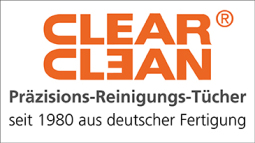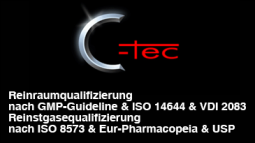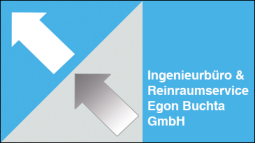Titanium material: Pump manufacturer sets up its own clean room for sensitive welding processes
Special chemical injection package for a sulfur recovery plant - 98.82 % of 339 welding joints pass strict inspection for integrity and surface contamination
In June 2016, the operator of a sulfur recovery plant in the United Arab Emirates inquired the experts at LEWA NIKKISO Middle East for 13 chemical injection packages. One of the packages presented a particular challenge: it was intended for pumping sodium hypochlorite solution at a temperature of 85 °C, a highly corrosive fluid, which meant that wetted parts had to be manufactured from titanium - a very distinct material. Based on the stringent specifications of the customer, the subsidiary of the German-based LEWA GmbH decided to build its own climate-controlled 45 m² clean room to create an appropriate environment for titanium welding. All relevant welding parameters such as current, gas flow rate and temperature were jointly tested and adjusted by in-house welding engineers and appointed welders to meet all requirements. The customer wanted to ensure the quality and longevity of all welding joints. This was done by adding an extra requirement that a careful visual inspection be carried out after each welding joint was completed. Special attention was paid to prevent potential surface contamination in the heat-affected zones. 98.82 percent of all welding joints passed the rigorous visual and radiographic inspections. The titanium chemical injection package was successfully accepted and delivered in January 2019.
The chemical injection package designed and built for pumping sodium hypochlorite (NaClO) solution was delivered by LEWA NIKKISO Middle East to Zirku Island in the United Arab Emirates. It was part of an order that included a total of 13 injection packages. The two-compartment sodium hypochlorite tank was made of fiberglass-reinforced plastic (FRP). All other wetted parts were made from corrosion-resistant titanium material. This material is especially well-suited for the pumped fluid at the design temperature of 85 °C. In addition to two API 675-compliant NaClO dosing pumps, the package is fully equipped with titanium valves, strainers and a complete set of instruments.
These pumps are hydraulically actuated diaphragm metering pumps of the type Ecoflow LDC1 from LEWA. Thanks to their robust design and the resulting longevity, they can be used for difficult application conditions and fluids. Moreover, the pumps are hermetically tight to ensure safe handling of hazardous fluids. "For the project in the United Arab Emirates, we made the wetted parts – such as the pump heads and piping – out of titanium, to further increase the resistance of the units," explains Senthil Nathan, Project Manager at LEWA NIKKISO Middle East. The material used for piping is titanium material (Grade 2), in total 58 meters of pipe ranging from ½ to 2 inches diameter with 339 welded joints have been completed.
High customer requirements for titanium components
Manufacturing the piping system from titanium was the biggest challenge involved in this project. “Welding titanium is very different from welding any other material," explains Nathan. "During the welding process, the material is extremely sensitive to surrounding conditions, in particular to temperature and cleanliness. In addition, the necessary inert gas atmosphere around the welding point is very specific and requires constant attention in order to obtain a satisfactory result." However, the German pump manufacturer and system integrator LEWA had already gained the necessary expertise in working with titanium from past projects. In 2015, LEWA used titanium materials to build pumps and piping systems for the largest chemical injection module in the company's history used on a Floating Production, Storage and Offloading (FPSO) vessel. "For the sulfur recovery plant project, we built on this expertise and added in-house titanium piping manufacturing to the portfolio of LEWA’s own capabilities," explains Nathan.
The customer wanted a system that was suited for the sodium hypochlorite application, and as a result, very high requirements were placed on manufacturing the components. "All the titanium welding processes had to be carried out in a separate welding room with its own special climate control," says Nishar Parakkunnath, Head of production at LEWA NIKKISO Middle East. "The surfaces being welded were supposed to have a temperature of at least 15 °C and no more than 90°C. After the welding, all welding joints had to be checked by a visual inspection before any cleaning.” The inspection focused specifically on the heat-affected zones (HAZs) and on the potential surface contamination of the welding joint. "Based on prior experiences with other manufacturers, the customer had laid out very stringent acceptance criteria with respect to the discoloration of the joint during welding," explains Venkatesh Chidambaram, QC Manager at LEWA NIKKISO Middle East. "For this reason, the joints had to be pure silver in color before brushing."
Extensive adaption of production to the challenging material
To meet the required criteria, LEWA NIKKISO Middle East built its own 45 m² clean room at its factory in the UAE. Furthermore, the company purchased special welding equipment and accessories for the titanium welding process. "After that, we adapted the direct and indirect welding parameters for the gas tungsten arc welding method that was used," says Parakkunnath. "These parameters included energy input, travel speed, gas flow rate for inert, return and follower gas, as well as the preheating and intermediate flow temperature."
The welders paid special attention to the gas shield around the connection. Without specific precautions, titanium material becomes contaminated right away from the atmosphere. "This type of contamination potentially reduces the service life of the welding and base material. Our customer wanted to eliminate any chance of this happening by imposing stringent specifications," explains Chidambaram. This is why it was critical to protect the welding pool adequately by consistently maintaining the gas shielding to cool down metal surfaces and prevent oxygen ingress.
High-quality welding results
The results of these welding tests were monitored in each case by the welding supervisor and quality inspectors. Based on these results, LEWA NIKKISO Middle East worked out improvement criteria to attain the required welding joint quality. This is how the company subsequently reached such an outstandingly high proportion of flawless welding joints: 335 out of 339 in the project. "After all inspections were conducted, the total rejection rate amounted to a mere 1.18 percent," says Chidambaram. "This result has been recognized and validated by our customers." The titanium welding work was completed in a time frame of 30 days and the complete chemical injection package was delivered early 2019. The package will be in full operation in 2020.
In a brief interview:
Sylvain Latuilerie, Managing Director of LEWA NIKKISO Middle East, on the titanium package challenge and the growth market Chemical Injection Packages in the Middle East.
Mr. Latuilerie, LEWA NIKKISO Middle East is a wholly owned subsidiary of the German LEWA GmbH and specializes in the design and manufacture of Chemical Injection Packages. How many injection packages do you currently produce at your facility in the United Arab Emirates?
“We currently deliver 150 to 200 packages per year, which we produce from various materials such as CPVC and PVDF, carbon steel, stainless steel, super duplex SS, Inconel, Hastelloy and Titanium. We have developed in-house welding qualifications and processes for all these materials and are ASME U, U2 and R stamp certified. Although our main geographical area of responsibility is Middle East and India, we design and build packages for other LEWA Group companies which is always creating great opportunities.”
In 2016, you received the request for the Titanium Package for the sulphur recovery plant. Was this the first request of its kind to your company? If so, how did the decision to produce the package in-house come about?
"LEWA Group has had some experience with Titanium Packages before 2016 using sub-contractors. This project was actually the first request to us as specialists in Chemical Injection Packages. First, we surveyed the local market and looked for existing companies involved in titanium welding. After a few unfruitful audits, we decided to take up this challenge and implement the project in-house. We have invested a lot of time to acquire the specific competences related to handling titanium – in the end, the agility, professionalism and perseverance of our team has made it possible. We have delivered a package which complies with all the requirements and expectations of our client".
LEWA GmbH
71229 Leonberg
Germany















